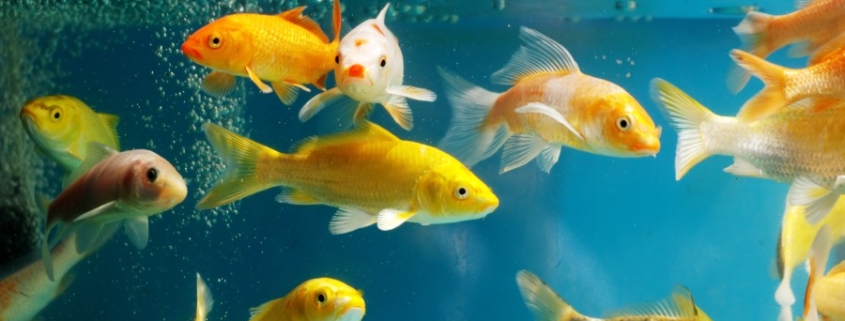Swollen belly in animals and humans is popularly called dropsy. It also affects humans, but this post will concentrate on how they affect fish and how fish can contact the horrible disease.
If your fish has a swollen belly, it is most likely they are suffering from dropsy. Dropsy is caused by bacteria that infect the fish; whenever there is an accumulation of fluids around the abdomen, tissues, or cavity of fish, the fish belly will appear swollen.
Almost all tank/aquarium is hosting bacteria, and this is why dropsy is widespread among guppies, especially because they are kept as a pet.
However, only fish with weak immune systems contact this disease, and weakness in the immune system is caused by poor feeding and consistent stressing of your fish.
Like in humans, dropsy can be the effect of other ailments, which manifests in the form of a swollen belly. This disease kills fish fast even when detected early; prevention is better than cure when dealing with a deadly disease. If you discover your guppy often get sick, you should treat them properly because sick pets usually have a weak immune system, and fatal bacteria can creep in to cause more havoc.
How Does a Fish Contract a Swollen Belly?
However, in the previous paragraph, we have said that the bacteria that cause swollen belly are present in all aquariums. Still, the level of the immune system in each fish will determine if they will be infected or not. Below are the major factors that lead to a swollen belly in fish.
Horrible water quality: If you have been following this post, you will know that toxic habitat is a breeding ground for bacteria that, in turn, leads to the swollen belly. Imagine the number of bacteria living in an aquarium filled with leftover feeds, unchanged water, nitrites, and all kind of unwanted substances. It is an open fact that the immune system of a fish in this kind of environment will be weak, and it will be susceptible to diseases, ensure you install a filtration system to eradicate biowaste.
The proliferation of the level of nitrate and ammonia: Most belly that is swollen is caused by the accumulation of toxic fluids like these chemicals to the tissues, muscles, etc. Proper aquarium hygiene is the brainbox behind eradicating these chemicals. Though ammonia cannot be entirely eradicated, it can be lowered to a bearable minimum.
Reduction in water temperature: Dropsy bacteria infects fish with a weak immune system. An aquarium with fluctuating temperature will lower the fish’s immune system.
Poor feeding: Weakness in the immune system is not only caused by the dirty environment. A poor diet will weaken your fish’s immune system instead of building it, and a weak immune system will permit a swollen belly, causing symptoms to degenerate.
Stress is the last but not the least factor that leads to a swollen belly. It starts from the point of purchase to their new home; it takes time for fish to acclimatize, especially when stocked in a new environment.
Conclusion
You should not change the aquarium water for 48 hours after you transported them to your aquarium. This will help reduce stress. It is also advisable to isolate bully fish and create hide spaces for fish not to be stressed.









